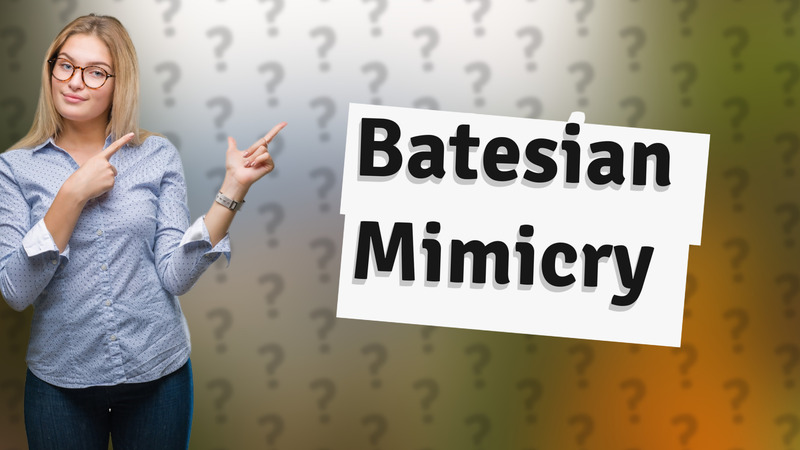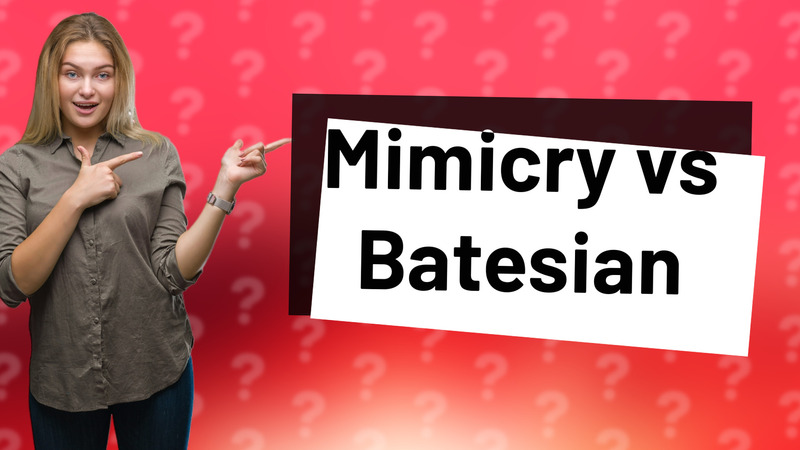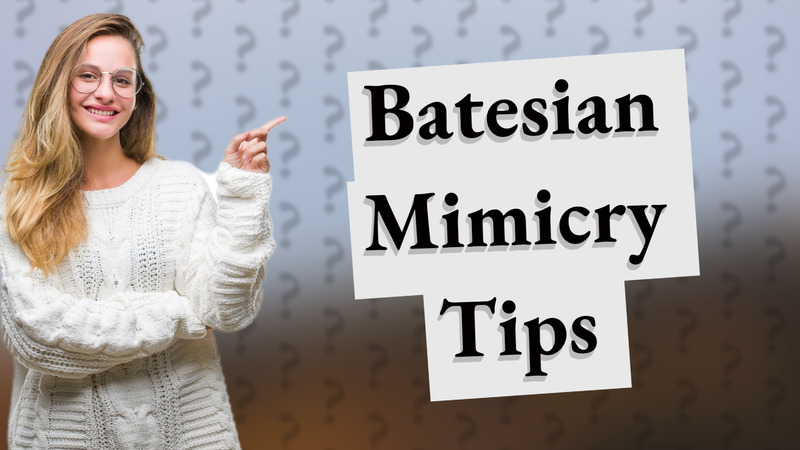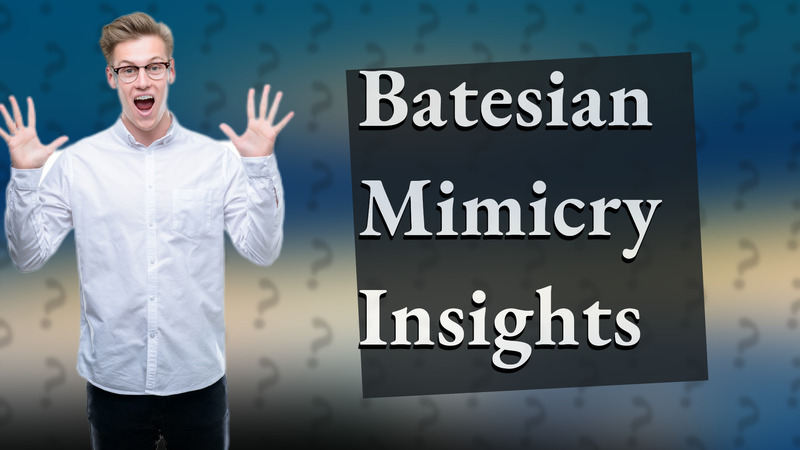
Explore Batesian mimicry in octopuses and how it aids survival by imitating dangerous sea creatures.

Explore the concept of perfect Batesian mimicry and how it aids survival among species.

Explore Batesian mimicry, a survival tactic in nature, and discover how the Viceroy butterfly imitates the Monarch for protection.

Discover how the mimic octopus uses Batesian mimicry to survive by imitating dangerous sea creatures.

Explore Batesian mimicry and its parasitic nature in this insightful Q&A.

Explore the concept of Batesian mimicry and discover why it is not toxic, yet plays a crucial role in predator-prey interactions.

Discover how Batesian mimicry enhances survival through evolutionary strategies that deter predators.

Learn the key differences between mimicry and Batesian mimicry in nature, including examples of species that use these strategies.

Explore the two types of mimicry: Batesian and Müllerian, and how they help species deter predators.

Learn about Batesian mimicry through the Viceroy butterfly's clever imitation of the toxic Monarch butterfly.

Learn about Batesian, Müllerian, and aggressive mimicry and how these strategies help organisms survive.

Discover how the Viceroy butterfly uses Batesian mimicry to survive by imitating the distasteful Monarch butterfly.

Discover how mimicry in frogs helps them survive by imitating dangerous species to deter predators.

Explore Mullerian and Batesian mimicry with clear examples of butterflies and snakes in this informative video.

Explore the crucial distinctions between Batesian and Müllerian mimicry in the animal kingdom and their survival benefits.

Explore how an excess of Batesian mimics impacts predator perception and survival of models in the ecosystem.

Discover Müllerian mimicry, the opposite of Batesian mimicry, where harmful species benefit by resembling each other.

Learn how Batesian mimicry aids butterflies like Viceroy in predator evasion by imitating harmful species like Monarch.

Discover the conditions under which Batesian mimicry thrives. Learn how predator behavior influences mimic success.

Explore the fascinating world of Batesian mimicry and discover the animals that use this strategy to evade predators.

Learn how the viceroy butterfly mimics the toxic monarch butterfly in Batesian mimicry for survival.